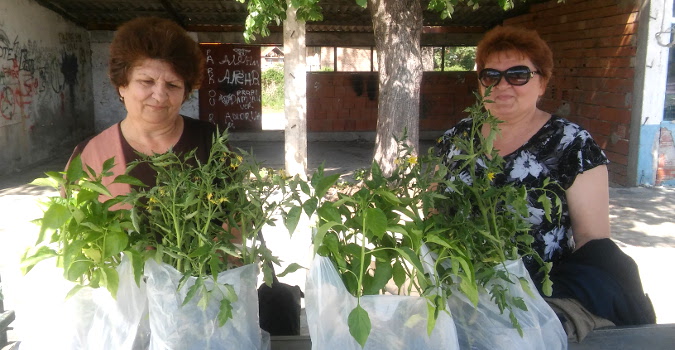National planning and budgeting

Strategies and plans for gender equality in Serbia are often inadequately financed or ignored in government planning, significantly undermining progress towards gender equality.
UN Women in Serbia works to ensure that gender equality is central to Serbia’s planning and budgeting for national development and EU accession and to strengthen the institutional mechanisms that coordinate and drive the gender equality agenda.
UN Women in Serbia advocate for transparent and adequate public financing that channels sufficient resources to both women and men to strengthen gender equality mechanisms at all levels of government.
To hold governments accountable for achieving their gender equality objectives and mainstream gender into public processes, UN Women in Serbia promotes gender-responsive policymaking and budgeting at national, provincial, and local levels. Implementing gender responsive budgeting is closely related to public finance management reform Serbia began in 2015. Regulated by the Budget System Law of 2016 that includes achieving gender equality as an objective, this foresees gradual implementation of gender responsive budgeting at all levels of government by 2024.
Serbia is prone to natural disasters which often exacerbate gender inequality. Although these disasters and the adverse impacts of climate change affect everyone, women and men may experience their effects differently, with women usually disproportionately and negatively affected. Women have limited resources, less access to justice, restricted mobility, and a more limited voice than men in shaping decisions and policy. On a more hopeful note, women’s gender roles and responsibilities create an opportunity to tap diverse and critical solutions to climate change challenges.
UN Women in Action in Serbia
UN Women Serbia continues to partner with the Ministry of Finance, the Provincial Secretariat of Finance and the Coordination Body for Gender Equality, oversight bodies, media, and local self-government units to foster gender-responsive budgeting.
Since UN Women in Serbia began in 2020 the regional project, Transformative Financing for Gender Equality towards more Transparent, Inclusive, and Accountable Governance in the Western Balkans, to integrate a gender perspective into every stage of local and national policy and budgetary processes, 71 line ministries and institutions at the national and provincial level — 83% of all direct budget users —included in their 2022 budgets measures and activities to achieve gender equality. In addition, financing to support gender equality was included for 104 budget programmes (62% of all programmes), 216 programme activities and projects, 369 budget objectives and 710 gender-sensitive indicators.
In March 2021, UN Women in Serbia began implementing phase two of the EU-funded project Support to Priority Actions for Gender Equality in Serbia” (Gender Equality Facility II). Funded within the EU Instrument for Pre-Accession Assistance (IPA) II, Gender Equality Facility II, in partnership with the Coordination Body for Gender Equality, the Ministry of European Integration of the Government of the Republic of Serbia and women’s civil society organizations (CSOs), will further support the Serbian Government to:
- Effectively implement the EU Gender Equality Acquis;
- Adopt and implement the new legal and strategic framework for Gender Equality;
- Support gender equality mechanisms at the national and local level and gender mainstreaming in policies and EU funds programming;
- Develop administrative structures and management systems to implement and oversee its National Strategy for Gender Equality.
Additionally, Serbia’s Ministry of European Integration and EU-funded institutions will receive support to include gender perspective in planning and assistance programming. Finally, the project will support women’s CSOs in implementing community-based gender transformative initiatives.
To reduce the burden of unpaid care work on women, UN Women implemented the British Embassy in Belgrade-funded project Redistribution of Unpaid Care Work, whose activities resulted in:
- Increased visibility of unpaid care work as a valuable contribution to society;
- Challenging social norms that promote unequal sharing of care work between women and men;
- Advocating for policies and investments to reduce and redistribute unpaid care work.
In addition, UN Women is strengthening the capacities of CSOs, local governments, public institutions, the Ministry of Environment, and other stakeholders to bring the gender dimension into climate change resilience and adaptation initiatives to ensure gender responsive planning.